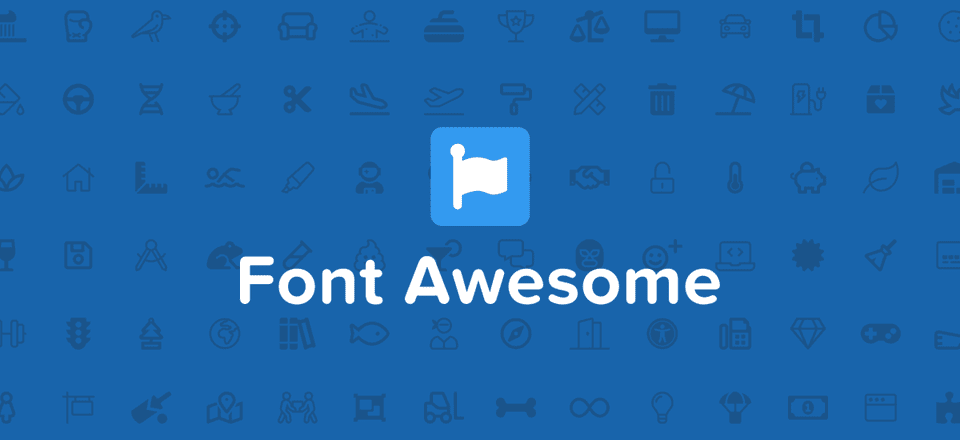Although this post is directed towards WordPress developers, it applies to anyone working in the WordPress freelance arena. There are really only two kinds of entrepreneurial freelancers:
Those who place a high value on personal performance and improvement.
Those who become more comfortable with resting on their laurels.
Sometimes working as a freelancer can make it difficult to see yourself as an entrepreneur. It often feels like you’re working for multiple employers instead of forging your own path.
Trying to stay out if this mindset requires a commitment to personal improvement. You need to always be thinking about how you can be better, how you can improve your business and what you need to focus on in order to take your business to the next level.
In this post, we’re going to look at how you can keep tabs on your performance – keeping yourself accountable both personally and professionally.
Why It’s Important to Evaluate Your Performance
Comfort is your enemy. As a freelance WordPress developer, nothing is more likely to cause your business to become stagnant than resting on your laurels. And that’s the sneaky thing about being a freelancer, your business is always moving either forward or backward – it’s never stationary.
Your freelance business is a lot like a human body. In order to thrive, it requires constant care and attention. Many people think that by being inactive, they are simply maintaining the status quo. But the reality is, after the age of 30, you begin to lose muscle mass at the rate of 3-5% per decade. A decline so gradual that you barely even notice the change.
As a freelancer, the health of your business is closely related to you as an individual. Since you are essentially the captain and the crew, if your business is suffering, there is no better place to look than yourself.
Measuring your personal performance will allow you to stay on top of the factors that are most likely to have a positive or negative effect on your business.
Measure What Matters
If you were to look at your personal performance from a typical human resources perspective, you might be thinking that your assessment should be based entirely on upon metrics such as lines of code written and number of bugs fixed. Obviously, as a developer, those types of numbers are important. As are the number of words written to a writer, tickets closed to a customer service rep and the number of designs completed and shipped to a designer.
The question that’s worth asking is whether or not those are the metrics you should be focusing on. Are they the cause or the result?
If your personal performance metrics are simply based upon how much work you are able to produce, there should be little else to worry about other than churning out more work – more lines of code, more bugs, more words and more designs.
Yes, those numbers are important, but that’s not the real solution to running a more productive and profitable freelance business. Coming back to the human body as an example, how would someone running a 5km race improve their performance? Simply telling them to run faster would be pointless. I suppose that if their effort was poor to begin with, then yes, they would see a boost in performance. But if the runner was already putting forth a respectful effort, simply trying harder will only improve results to a certain point.
If you rely on your freelance business to pay bills, chances are, you’re already working pretty hard at being productive, right? So the question is what should you be evaluating in order to improve your performance?
The answer to that questions lies in assessing the factors that affect you personally – the factors that are directly responsible for your output or productivity – your mental health and your physical health.
4 Things You Should Be Measuring to Maximize Performance
Despite their importance, there are many developers, designers and other WordPress professionals who do not yet understand the effect of physical and mental well-being on their business. Specifically, how do physical and mental well-being contribute toward the growth, prosperity and productivity of your business? Let’s look at some specific areas that you might find worth measuring:
Total hours worked per week is an important statistic to track but probably not for the reasons that first come to mind. Working more hours should never be your objective. Working more productive hours should be. Slate magazine published a great article that discussed the relationship between hours worked and overall productivity. It turns out that for many people, the ideal work week, at least in terms of being productive, should probably be just under 40+ hours per week.
Each individual will have their own sweet spot and it’s up to you to find yours. Once you hit your peak efficiency, you’ll probably find that the productivity return per hour worked decline rather quickly.
Average Hours of Sleep per Night
In this article, The Harvard Business Review discusses the relationship between sleep and performance. More importantly, especially for most freelancers, is the fact that lack of sleep results in poor performance – it’s definitely worth a read and something that is highly relevant to a profession where attention to detail is so important.
If you want to maximize your performance as a developer, you should average 8 hours of sleep per night.
In a culture where getting 5-6 hours of sleep is more a badge of honor than anything else, we are creating a problem that has consequences which reach far beyond decreased productivity. Since our focus today is on evaluating your personal performance, just know that 5-6 hours of sleep per night for a few days can have a dramatically negative affect your performance.
As a freelance developer or designer, you’re going to come up against deadlines – it’s just part of the business we are in. Clients often expect things to be completed by a certain time and they don’t care how long it takes you or how late you need to stay up in order to get the job done.
But the real problem here isn’t your clients, it’s you. You need to respect your limitations and then communicate them clearly to your clients. If you look at your workload for the week and see that completing your tasks according to schedule is going to be difficult, let your clients know there will be some delays.
If you don’t respect your health and wellness, who else will? And if your clients can’t respect your desire to take care of yourself, are they really someone you want to work with anyways. Plus, being well rested, happy and healthy means you’ll be cranking out higher quality work.
Minutes of Physical Activity per Week
Personal performance can’t begin and end in front of a computer screen. There are two issues at play here. The first of which centers around the fact that exercise makes people happier. The second issue is that happiness boosts productivity.
The relationship between activity, happiness and productivity make the benefits of regular exercise pretty clear. If you want to perform at a higher level, you need to exercise. Time is no longer an excuse since 70-140 minutes per week appears to be enough to be enough to positively impact your overall health and productivity.
Another consideration is how activity makes you feel physically. As a developer, designer and yes, writers too, you probably spend countless hours sitting in a chair. In case you haven’t educated yourself on the risk factors that coincide with sitting for long hours, it’s worth doing so. The more time you spend in a chair, the more important physical activity becomes. (http://www.health.harvard.edu/blog/much-sitting-linked-heart-disease-diabetes-premature-death-201501227618).
The Importance of Diet
Much of focus in this article is upon the idea that garbage in equals garbage out. More than anywhere else, this rings true when talking about nutrition. In fact, the WHO estimated that you could increase your overall productivity levels by 20% with diet alone.
For freelance developers, working long hours means it’s easy to create eating habits that are less than optimal. Some people even develop the habit of not eating at all – they’re too busy. How absurd it that?
When you’re assessing your personal performance, make sure you take a close look at the fuel you’re putting in your body. It affects your energy levels, alertness and ability to focus for longer periods of time. https://blog.bufferapp.com/the-science-behind-how-your-nutrition-will-decide-your-productivity-for-today
Time Spent on Personal Development
Personal development plays an important role both in improving and evaluating your performance. In order to perform well, and more importantly to improve, you need to spend time on personal development.
When evaluating your performance, you should be asking yourself, “how much time did I spend on my personal development this week?” Did I stick to and improve upon my plan? Did you spend time learning a new skill? Maybe you’ve committed to spending time each week writing tools that will improve your workflow – allowing you to reduce your overall hours worked.
You should spend time every single week on personal development. Even it’s only a few minutes, the commitment to improvement will have a trickle down effects on everything you do.
Results Worth Improving Are Worth Measuring
If you really want to evaluate your personal performance effectively, it’s a good idea to set up a method of tracking both your input and your output. A simple Google or Excel spreadsheet separated into weekly columns will work just fine.
As long as you record, on a weekly basis the factor that are most important to you, over time you’ll become better at evaluating your personal performance. You’ll also get better at picking out the factors which have positive or negative effects.
Conclusion
Too many WordPress developers and designers and freelancers in general, focus on the wrong tasks when it comes to evaluating and improving your personal performance – measuring output as if it’s the one and only metric that deserves attention. An approach that in my opinion, it the wrong one to take.
You can only improve your output to a certain, limited degree by working longer or harder. Beyond that point, your productivity falls off and your performance decreases quite rapidly.
In order to evaluate personal performance in a way that opens the door to improvement, you need to focus on the input rather than the output. Your productivity, lines of code written and bugs fixed are all determined by your sleep, physical activity, hours worked and commitment to personal improvement.
High quality input equals high quality output.
How do you measure you performance as a WordPress developer?
What factors to you find have the biggest impact of your personal performance?
Article thumbnail via Bloomua // shutterstock.com









Hey Tom,
Great post where you talk about topics to which we don’t think first to evaluate our performance. It’s just common sense, but easy to forget. A healthy mind in a healthy body.
Customer or Client satisfaction is how I measure performance as a wordpress freelancer.
Self care is so important!! Not just for freelancers and website developers! For EVERYONE! Although this past week, I’ve been slacking on the sleep and the body movement 🙁 Thanks for the reminder!
A really great read, thank you! I suffer from many of the above freelancer pitfalls, but will definitely adjust my time management to increase my own personal productivity.
All-in-all, it was a fun and informative article. I especially liked your health metaphors 🙂
BTW, there’s one tiny typo in the first paragraph of your Conclusion:
“– measuring output as if it’s the one and only metric that deserves attention. An approach that in my opinion, (is) the wrong one to take.”
Thanks again for a spot-on blog post!
The amount of money you make is the sole metric for measuring vocational success. These other factors, like sleep, optimized work schedule, proper diet, exercise, etc, can all affect your ability to make money (your end), but they are not an end unto themselves.
Thanks for the post. Very interesting research. I think we’re mostly on the same page.
This was a surprisingly great read. I did not expect to read about the topics you brought up and I could identify with a lot of the points you mentioned. Thanks for making me a little more aware of the facts that I need to monitor my health and that it can be considered an accomplishment to invest time into personal growth. Sometimes it’s easy to forget these things.
Oh! In our country (Bangladesh) the developers sleep minimum 5 hours, even few sleep 2-3 hours at night. Are they perfect developer?